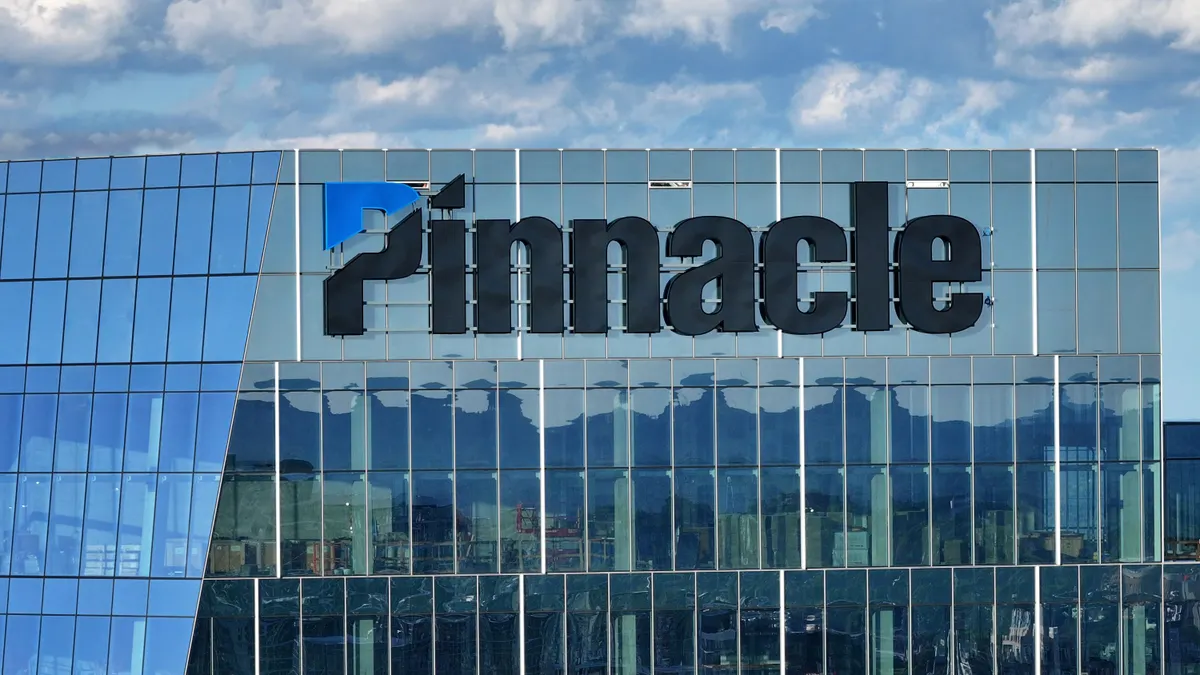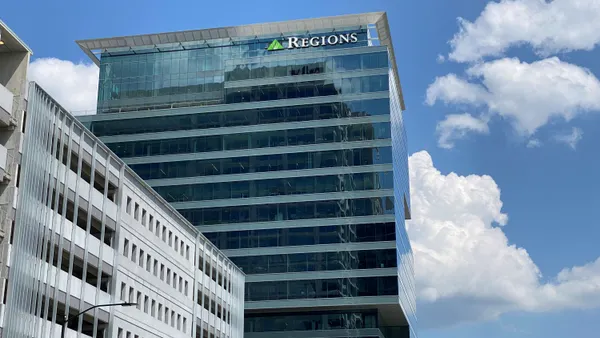Dive Brief:
- Kalshi, an exchange that aims to let users trade on event outcomes — buying "yes" or "no" contracts based on whether they think a future event will happen — completed a $30 million Series A funding round and will launch in March, the company said Wednesday in a press release.
- The debut comes amid a groundswell of interest in day trading by amateur investors. Robinhood, for example, doubled its customer count in 2020. But the launch also coincides with an uptick in concern from regulators over the "gamification" of investing.
- Under Kalshi's model, contracts would pay out $1 if a user has determined a correct outcome, and nothing if incorrect. However, users can also influence the price of a contract before an event happens, depending on popular opinion toward a "yes" or "no" outcome. Kalshi's website now features a scrolling poll of about a dozen events, replete with trading deadlines, upon which users could vote — once the platform is live. A customer, in theory, could choose to buy a "yes" contract for 10 cents, then sell it for higher if public opinion changes and it appears more likely that an event will occur.
Dive Insight:
Kalshi is named for the Arabic word for "everything," its founders told The Wall Street Journal — perhaps a statement on the variety of events upon which contracts can derive.
There are a few exceptions to "everything." Federal law prohibits Kalshi from listing contracts regarding war, terrorism, assassinations or gaming. The definition of the latter can be determined by the Commodity Futures Trading Commission (CFTC), which, in November, approved Kalshi as a designated contract market.
Tarek Mansour, Kalshi's co-founder and CEO, said his company isn't planning to offer sports contracts.
The CFTC can also bar certain event contracts if the regulator deems them against public interest.
"The universe of what has financial value is expanding rapidly. Markets for information, digital assets and even sneakers are becoming just as valuable as legacy markets for commodities, such as oil, crops and gold," Mansour said in Wednesday's press release. "It's clear that derivatives markets have some catching up to do, which is why Kalshi will offer event contracts as a novel asset class that covers a broad range of topics. These contracts will become a powerful instrument in the modern investor's toolkit."
The seed for Kalshi came while Mansour served as an intern for Goldman Sachs in 2016. Clients asked the bank to help them hedge against the risk that the U.K. would vote to leave the European Union. The derivatives products Goldman created took into account how certain markets would react upon an affirmative Brexit vote. Mansour imagined a scenario in which contracts paid out simply in the event of the vote, The Wall Street Journal reported.
Mansour, 24, founded Kalshi in 2018 with fellow former Massachusetts Institute of Technology researcher Luana Lopes Lara, who herself interned at Citadel Securities and hedge fund Bridgewater Associates.
"Investing is about putting money behind an opinion of what will happen in the future. Yet, traditional assets like stocks don't provide direct exposure to event outcomes," said Lopes Lara, Kalshi's chief operating officer. "Kalshi solves this problem by allowing investors to strip away all the other noise that influences asset price and isolates trading on the event itself."
Venture capital firm Sequoia Capital led Kalshi's Series A funding round, which brought the startup's total raised capital to $36 billion. Other investors include Charles Schwab's eponymous CEO, KKR co-founder Henry Kravis and SV Angel. Y Combinator and Tinder co-founder Justin Mateen had previously invested.
Some trading platforms' business models have come under fire in recent months. Massachusetts regulators filed a complaint against Robinhood in December, claiming the trading app uses "aggressive tactics to attract inexperienced investors" and "gamification strategies to manipulate customers."
The state's securities agency argued Robinhood seeks "continuous and repeated engagement" by encouraging customers via email alerts to make trades, uses in-app prompts to push customers toward higher-risk investment products, celebrates trades with digital confetti, and sends users messages adorned with emojis prompting them to buy additional shares.
The company responded last month that the complaint "misrepresents the Robinhood experience." Its CEO, Vlad Tenev, testified Thursday to lawmakers regarding the spasm of activity on his platform among traders inflating the value of shares in video-game retailer GameStop. Robinhood paused trading of stock in that company for about a week when it said the stock market's central clearing hub, the Depository Trust & Clearing Corp. (DTCC), demanded about $3 billion more in collateral from the company to back up the trades.
Kalshi said it has worked closely with the CFTC to create a regulated market and has safeguards to keep users from piling on too much risk. Kalshi customers, for example, can't use leverage the way futures or stock traders can.
The CFTC, however, has warned investors about binary options, partly due to an uptick in fraud cases centered on unregulated online platforms.
Kalshi is accumulating a waitlist ahead of its launch.













